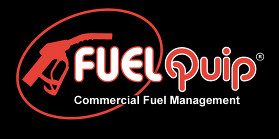What You Need To Know About Fuelling Equipment For Transport Depots
There are several important considerations concerning the storage and transport of fuel. When it comes to choosing fuelling equipment for transport depots, all of the necessary concerns apply. However, given that these stations are often positioned near high-traffic areas and may service a large volume of vehicles, extra care must be taken in the overall design of these systems. Following are a few things that the designers and users of these systems should know ahead of making any additions or modifications.
Environmental concerns abound in every instance in which fuel will be used or stored. As such, before choosing any equipment, planning for a particular space and setting things up, there are two, primary factors that have to be reviewed. Foremost among these is the location of the nearest bodies of water. Should things go awry, these places should not be impacted by spillage.
The second of these two concerns is the location of nearby forestry. Not only is this a stipulation that is designed to protect trees and other foliage, but it additionally accounts for any animal, insect and other populations that are reliant upon the consistency and health of the local eco-system. In instances in which forestry is near the stated limits for station design, special precautions must be taken in the selection of containment units and the measures for preventing spills, as well as in efforts for preventing both fire and combustion.
Dispensing procedures are of the utmost importance when it comes to protecting both people and the environment. To ensure a seamless process, containers must be properly connected to the equipment for disbursement such that leaks do not occur throughout this process. This is vital for protecting nearby soils.
It is vital to note that when spillage does occur, all affected soils must be removed or treated within a timely fashion. This is done to prevent the contamination of groundwater and the spread of chemical contaminants as the result of rainfall. As such, tools for minimizing the effects of spillage should also be kept nearby.
There are also several steps that managers of these sites need to take in order to prevent fuel theft. A Fuel Management system from FuelQuip can control access to the pump through the use of R.F.I.D Tags which places extra security on the equipment and liquid stock. Users must meet specific parameters before fuel is permitted to be allocated. For example, placing a limit on the amount of litres allowed to be dispensed to a vehicle within a certain time period can help to prevent extra containers be filled at the pump. Calculating MPG can also highlight any discrepancies
When systems are designed, implemented, altered, upgraded, or maintained, it is important to have a compliance consultant on board. The rules and regulations pertaining to these systems can vary greatly worldwide. There are also differences that reflect the type and amount of fuel that will be stored in these locations. Working with a consultant is vital for avoiding fines and for minimizing the likelihood of both small and large-scale issues.

